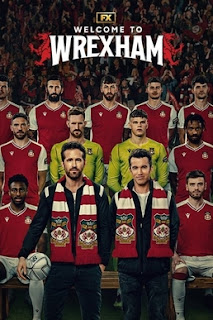In ages past, the evil Arakacians discovered a fluid granted immortality to anyone who consumed it. The Arakacians built an empire and enslaved the known universe for centuries. They were finally vanquished after the source of the fluid was sealed off by freedom fighters. The key to the source, a glowing crystal that can lead the bearer back to the fountain and drives anyone who possessed it insane, was cast into space and lost among the stars.
In a present-day asteroid excavation, space crewman Tyler and his colleague find the key by accident. Tyler touches the key and instantly goes becomes malevolently insane. He murders several colleagues, drums up an army of thugs, and begins a search for the source.
His first port of call is the city of Eden, a planet where the inhabitants carry traces of the immortality fluid in their systems. This certainly doesn't save them, though: Tyler's has his forces slaughter almost everyone then leaves the planet to continue his quest.
Almost is the important word there. A survivor named Julie pursues Tyler across space, determined to execute him for his crimes. Of course, she'd better do that before Tyler finds the Source, or he'll become immortal ...
This film is a follow-up, but not a true sequel, to the 1981 animated feature Heavy Metal, from the publishers of the magazine of the same name.
For a few years in the late 80s or early 90s, I was a regular reader of Heavy Metal magazine. I saw the original film back then as well, and quite enjoyed it. When I first saw this film in early 2000s, I thought it was a very disappointing offering in comparison to the earlier film. Which just goes to show that me 20 years ago had some really thick rose-tinted glasses about the older movie!
I'm not saying this film is good, mind you: it's not. It's frankly a bit crass and juvenile. But as I discovered in my recent re-watch, so was the original. And this movie does have a couple of improvements.
First, it features significantly improved art and animation. Perspective is executed much more consistently and convincingly. CGI makes an appearance and is used effectively for backgrounds and spaceships, and has been blended well with more traditional character animation. There's also greater depth of colour and shadow.
Now of course, this film was made 20 years later than its predecessor, so it should be better. And it's not of a quality that's going to have Disney's animators quaking in their boots: but still, it's noticeably better than the original!
The film's plot also gets moving faster, maintains a more consistent tempo, and relies a lot less on exposition (at least once we're past the big info dump at the beginning). It's doubtless helped by the fact that rather than an anthology of short sequences connected by a loose framing story, it follows a single through-line narrative based (very loosely) on Kevin Eastman's "The Melting Pot" graphic novel.
Setting aside one particular black mark, said narrative is an adequate if fairly unexceptional sex-and-violence space opera. The sex and violence is very much front and centre, for the record: there's plenty of blood spurting around the place and lots of gratuitous animated nudity, much as in the first film. It all feels a bit self-consciously "look how edgy we are!", frankly - an adolescent attempt to be "adult".
The particular black mark is that the plot features quite a bit of sexualised violence. That's one thing that I could definitely do without, and comes across as every bit as crass as you might expect.
In the final analysis, Heavy Metal 2000 is not really much better than my initial impression of it; but at least that meant it wasn't a significant disappointment like my re-watch of the 1981 film!







